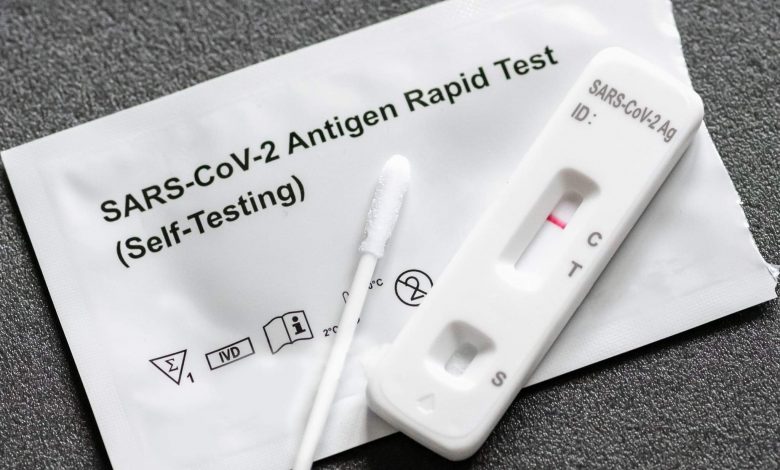Home COVID Tests Can Cause Harm FDA Warns

According to the U.S. Food and Drug Administration (FDA), popular at-home tests kits for COVID -19 can cause harm if they’re not used according to manufacturers’ instructions, and they also need to be kept out of reach from children and pets.
COVID-19 tests are a key tool in containing the spread of the coronavirus. But a few safety precautions are in order to prevent serious injury, the FDA warns. It said it has received reports of injuries caused by incorrect use of at-home COVID-19 tests due to:
- People accidentally putting liquid test solution in their eyes when small vials of test solution were mistaken for eye drops.
- Placing nasal collection swabs into the liquid solution prior to swabbing the nose (the liquid solution is not supposed to touch your body).
- Children putting test parts in their mouth and swallowing liquid test solution.
Self-testing is safe when the tests are used and stored properly. They offer a convenient and important way for people to check whether they or family members are infected with the coronavirus, according to the agency.
However, the liquid solutions in the test may contain irritating or toxic chemicals such as sodium azide. These chemicals can cause harm if they come into contact with your skin, nose, mouth or eyes, or if test parts, such as small vials containing the liquid solutions, are swallowed, the FDA cautioned.
Like many Americans, you may have received at-home COVID test kits from the federal government or purchased some from a retailer. If so, the FDA offers the following safety advice:
- Keep all parts of at-home test kits out of reach from children and pets before and after use. Also, store the test in its box until you are ready to use it.
- Follow the manufacturer’s step-by-step test instructions exactly. Read the “Warning, Precautions, and Safety Information” in the test instructions for a description of chemical ingredients and recommendations for safe handling. This will also outline what to do if they accidentally touch your skin or eyes.
- Keep the liquid solution away from the skin, nose, mouth and eyes. Do not swallow the liquid solution.
- Use only the swab in the test kit to collect a nasal sample.
- After you perform the test, follow instructions on how to throw away the used test parts. Wash your hands thoroughly with soap and water.
In addition, contact your local poison control or health care provider right away if skin or eye irritation does not go away after exposure, or a person or animal swallows the liquid solution.
If you have questions, contact the FDA’s Division of Industry and Consumer Education at 800-638-2041 or 301-796-7100. You can also call the customer service department for the COVID-19 test you are using.
If you think you had a problem with your COVID-19 test, you can report the problem through the FDA’s MedWatch Voluntary Reporting Form.





